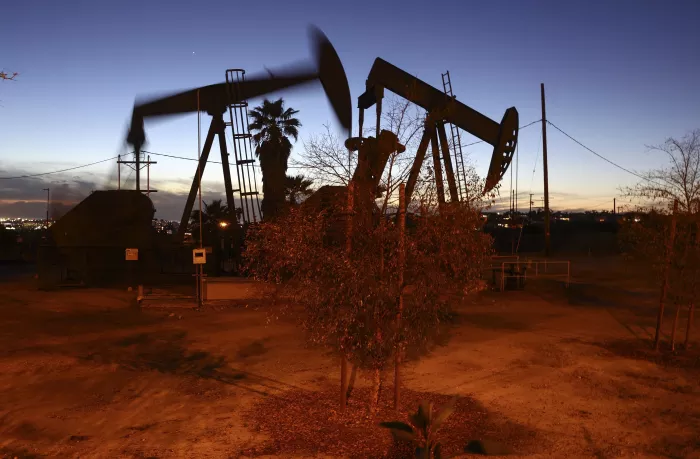Oil prices saw a significant rise on Sunday, climbing more than 3% after Israeli airstrikes targeted Iranian energy facilities. The escalation of conflict has raised concerns about further disruptions to regional oil supply and the potential expansion of the war into energy infrastructure.
Surge in Oil Prices Amid Heightened Tensions
Crude oil futures saw a substantial increase in the wake of Israeli airstrikes on Iranian energy sites. U.S. West Texas Intermediate (WTI) oil rose by $2.72, or 3.7%, to settle at $75.67 per barrel. Meanwhile, the global benchmark, Brent crude, surged by $3.67, or 4.94%, reaching $77.90 per barrel.
The price spike follows Israeli drone attacks on Iran’s South Pars gas field, located in the southern part of the country. According to Iranian state media, two gas processing facilities at South Pars were damaged, though the extent of the damage remains unclear. South Pars is one of the largest gas fields in the world, adding significant concern over supply disruptions.
Escalating Conflict and Energy Infrastructure Attacks
The conflict intensified as Israeli airstrikes targeted two natural gas facilities in southern Iran. Additionally, sources told The Jerusalem Post that Israel had struck a major oil storage facility near Tehran. According to The Times of Israel, Iranian missiles also caused damage to a large oil refinery in Haifa, Israel.
The continued violence, with missile exchanges throughout the weekend, has heightened fears that energy infrastructure may become a central target, amplifying disruptions to global oil markets. This marks the third day of hostilities between Israel and Iran, with no sign of de-escalation.
Global Oil Supply Concerns
This latest surge in oil prices follows a significant rise last week, with U.S. crude prices up by 13%. On Friday alone, oil prices jumped more than 7%, marking the largest single-day increase in the market since Russia’s full-scale invasion of Ukraine in March 2022.
The growing conflict has led to fears that the war could extend to the strategic Strait of Hormuz, through which about 20% of the world’s oil is shipped. A senior Iranian commander suggested on Saturday that Iran could consider closing the Strait, prompting further speculation that such a move could push oil prices past the $100 per barrel mark.
Concerns Over Strait of Hormuz Closure
Goldman Sachs has warned that a closure of the Strait would have significant implications for global oil markets. However, some analysts are skeptical about Iran’s ability to effectively block the waterway. Helima Croft, global head of commodity strategy at RBC Capital Markets, appeared on CNBC’s Squawk Box on Friday, stating, “Given the presence of the U.S. Fifth Fleet in Bahrain, Iran would find it difficult to fully block the Strait of Hormuz.”
Despite this, Croft acknowledged that Iran could still target oil tankers and deploy mines in the waterway, adding to the risks of supply disruptions. The ongoing military confrontations, coupled with these potential risks, have continued to drive volatility in oil markets, leaving traders and analysts on high alert.
As the conflict remains unresolved, oil prices are expected to stay volatile, with further geopolitical developments potentially influencing the trajectory of global energy markets.
Related Topics:
Oil Prices Could Fall Below $50 This Year Amid Weak Demand
Israel-Iran Strikes Trigger Sharpest Oil Price Surge in Three Years

